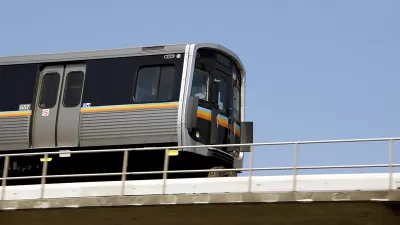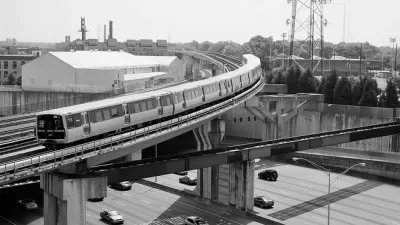Regional transportation officials gathered recently in Atlanta to tout a new era of regional cooperation, focused on delivering public transit improvements.

A recent ULI Atlanta-sponsored panel discussion provided a chance for the region's transportation leadership to present a new narrative on how they are working together to "provide transit linkages and more options to increase connectivity and mobility across the region."
According to an article by Sarah Kirsch and Daphne Bond-Godfrey, Atlanta’s traffic woes are the well-known story, but there's also a lesser-known story, about a "remarkable level of investment and coordination currently underway among our state and regional agencies to make significant changes in how Atlantans move around and through the region."
The momentum began in earnest in 2015 when House Bill 170 passed, providing additional, dedicated, cost adjusted funding for transportation investment across the state of Georgia. In 2016, residents of the City of Atlanta voted to tax themselves for “More MARTA” which will inject $2.5 billion unleveraged into City of Atlanta transit and mobility projects. In 2018, we expect to see more such referenda where residents have the option to tax themselves for specific local transportation investments.
The event featured speakers from the city of Atlanta, the Georgia Regional Transportation Authority/State Road and Tollway Authority, the Metropolitan Atlanta Rapid Transit Authority, the Perimeter CIDs, and the Atlanta Regional Commission.
FULL STORY: Atlanta’s Changing Transportation Ecosystem

Alabama: Trump Terminates Settlements for Black Communities Harmed By Raw Sewage
Trump deemed the landmark civil rights agreement “illegal DEI and environmental justice policy.”

Study: Maui’s Plan to Convert Vacation Rentals to Long-Term Housing Could Cause Nearly $1 Billion Economic Loss
The plan would reduce visitor accommodation by 25% resulting in 1,900 jobs lost.

Planetizen Federal Action Tracker
A weekly monitor of how Trump’s orders and actions are impacting planners and planning in America.

Waymo Gets Permission to Map SF’s Market Street
If allowed to operate on the traffic-restricted street, Waymo’s autonomous taxis would have a leg up over ride-hailing competitors — and counter the city’s efforts to grow bike and pedestrian on the thoroughfare.

Parklet Symposium Highlights the Success of Shared Spaces
Parklets got a boost during the Covid-19 pandemic, when the concept was translated to outdoor dining programs that offered restaurants a lifeline during the shutdown.

Federal Homelessness Agency Places Entire Staff on Leave
The U.S. Interagency Council on Homelessness is the only federal agency dedicated to preventing and ending homelessness.
Urban Design for Planners 1: Software Tools
This six-course series explores essential urban design concepts using open source software and equips planners with the tools they need to participate fully in the urban design process.
Planning for Universal Design
Learn the tools for implementing Universal Design in planning regulations.
Caltrans
Smith Gee Studio
Institute for Housing and Urban Development Studies (IHS)
City of Grandview
Harvard GSD Executive Education
Toledo-Lucas County Plan Commissions
Salt Lake City
NYU Wagner Graduate School of Public Service





























